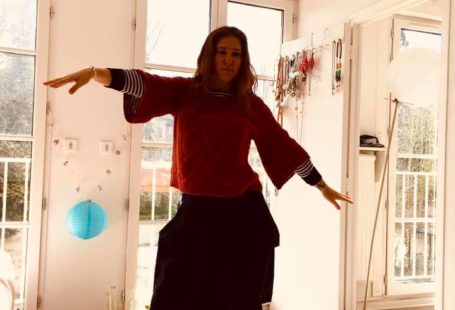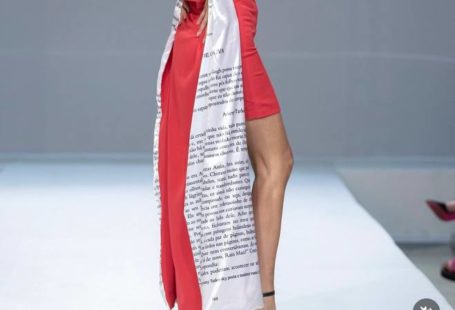Interview with Ridero
The Frankfurt Book Fair is one of the world industry’s major events. Ridero authors Anastasia Olshevskaya, Olga de Benoist and Anna Visloukh decided to attend it themselves this year. We asked them to share their impressions and the results of their trip.

Ridero: Tell us how you decided to go to the Frankfurt Book Fair?
Olga de Benoist: I met Nastia last year through my art project “People and The Cities”. She took part in it and talked about her literature and work on her novel ” The Chief Editor”, published in Ridero. At the time I was just writing my book “The Age Of Rain”. Nastia liked my manuscript and suggested we go to the exhibition in Frankfurt together.
This idea – to organise a group of independent writers and present it at the Frankfurt Book Fair – seemed to me promising and exciting. As a result of the discussion, this project took on a particular shape and ideological content – to promote modern Russian literature abroad. I suggested that we do this at the level of a professional agency – with high-quality documentation in English. I had worked in international companies for many years and understood how important it was to speak to Western partners “in their language”. Olga de Benoist
We prepared a book catalogue, synopses, presentations, started correspondence with publishers and publishing agencies… The first interested partners appeared. Nastya and I really “found each other”. As the saying goes, one in the field – not a warrior, and it was our ability to work together for a common goal predetermined the success of this seemingly impossible enterprise. When you approach things with a professional and committed approach, the result is overwhelming.

Anastasia Olshevskaya: Yes, the decision was not sudden. Just to come and “see what’s on offer” was not what we set out to do. The Frankfurt Book Fair is a platform for negotiations between market participants, a place where deals are made to buy and sell rights. The sticking point was: would any of the Western publishers and litterateurs be interested in a Russian writer who did not have a big and well-publicized name? All we had (myself, Olga and the other members of our writing group) was quality content, wins in literature competitions, professionally prepared presentations and, of course, our books.

We wanted to find out whether the long-held opinion that a Russian author should not even try to enter the Western market until he or she is “our everything” in his or her home country is true. We tried it and… got a breakthrough. Both large and small prose, fiction and non-fiction – all the books we presented in Frankfurt aroused huge interest among publishers and literary agents. Anastasia Olshevskaya
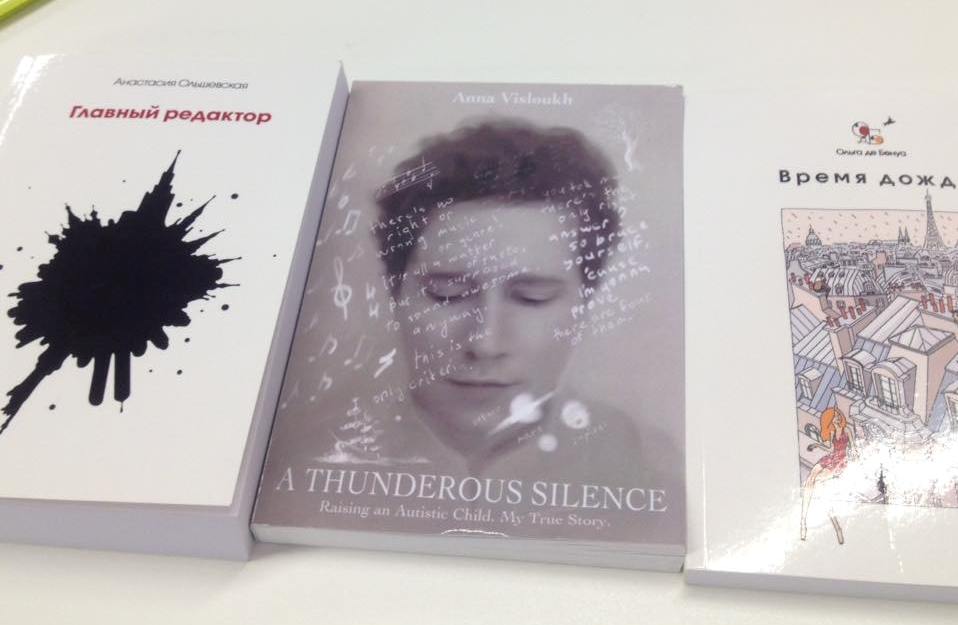
R: How did negotiations with Western partners go?
A.O.: On the technical side, all the meetings were planned in advance. We arranged them two-three months before coming to Frankfurt, as the heads of publishing houses and literary agencies are business people, and quite busy ones at that. As a result, we had a very tight schedule of meetings and contacts for the four days of the fair.
O.B.: We had 5-7 meetings scheduled per day, not counting casual contacts, which are usually made at such events. It was a very intensive week. Since we had sent all the information about our authors, their books translated into English, synopses and other materials in advance, negotiations often turned into discussions about forms of further cooperation. Of course, there were also presentations “from scratch”, when we presented our portfolio to a director of a major Western publishing house.
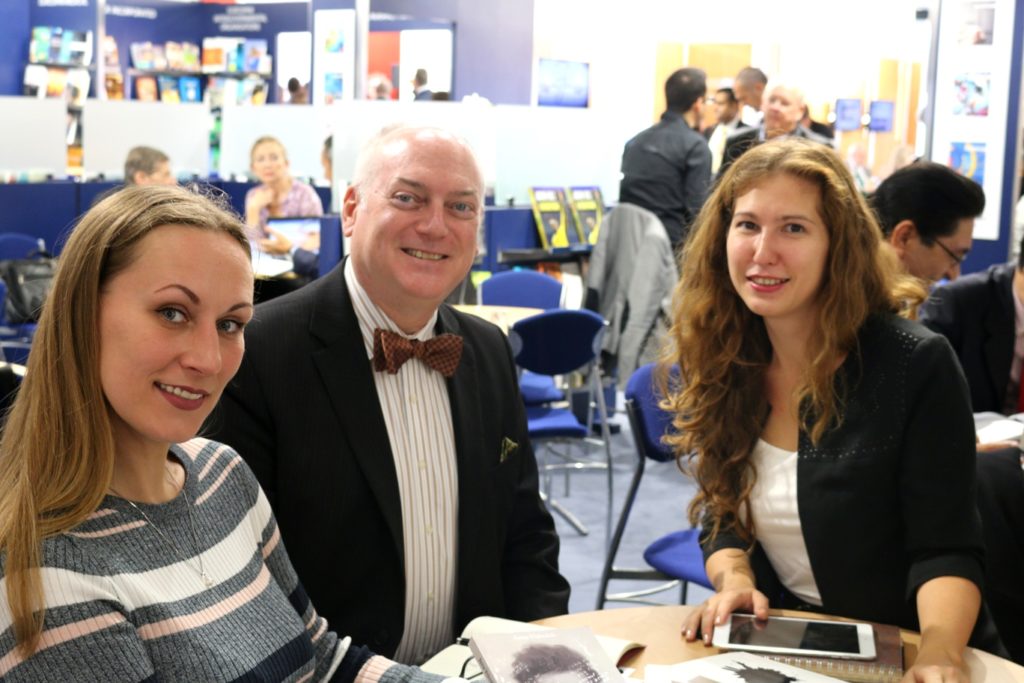
R.: What kind of arrangements have been made?
O.B.: We certainly did not hope to leave the exhibition with contracts already signed for the translation and publication of our books in all the major publishers in the world. That would have been too ambitious. But we managed to arouse particular interest from many publishers and literary agencies from the USA, Spain, the UK, Brazil, Argentina, India, Canada, France and so on.
For example, we met Laura Palomares from the legendary Spanish literary agency Carmen Balsells, which discovered Pablo Neruda, Gabriel García Márquez, Mario Vargas and Julio Cortázar. It has been said that it is impossible to “break through” to them. But Laura was very interested and saw commercial potential in the three books we presented: the political thriller ” The Chief Editor “, the love stories of “The Age Of Rain”, written in the style of magical realism, and the memoir “A Thunderous Silence” by Anna Wisloukh – a book about a boy with autism spectrum disorder, who graduated from an American university and became a composer. Time will tell what will come of it. But the results, which are already there, are inspiring.
A.O.: We have agreed with a major American publisher from Minneapolis to buy copies of our books for national libraries in the US. Now we work together on technical and legal issues. There is also great interest in buying translation rights from libraries and publishers in New York and other US cities, as well as from Toronto, Barcelona, London, Rio de Janeiro, Delhi, Paris, Haifa and Buenos Aires.
R: What was the Russian booth like this year and who was represented there?
A.O.: Russian publishers presented a united front, and occupied a relatively small area compared to other countries. Separate from the Read Russia stand was Ural-Press publishing house, and everyone else, as we understood it, fit into a few dozen square meters.
The main leitmotif of both the books and the conferences and speeches held was political. Perhaps no other country, out of the one hundred and two that were present at the exhibition, was so “politically active” in the range of books. It is true that the covers with portraits of Putin, Yeltsin, Gorbachev, Stalin, Brezhnev and Lenin were diluted with other non-fiction – cookery books and children’s literature – but there were significantly fewer of these.
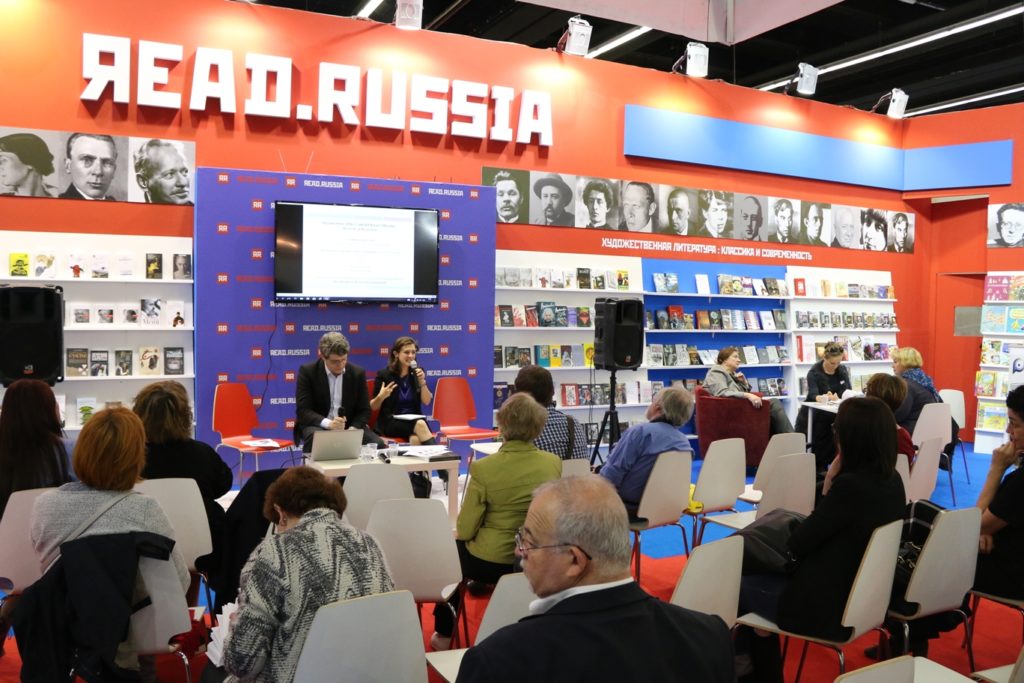
We came up to Eksmo to say hello and talk, and it turned out that no one from the modern fiction department came to the exhibition this year. In fact, the lion’s share of the Russian fiction on display in Frankfurt was in the classics: Dostoevsky, Tolstoy, etc.
O.B.: It struck me that all Russian publishers were united at one booth, and that fiction, which causes my greatest interest as a fiction author, was practically not presented. I wanted to ask a question: “And where in all that is the place of the modern Russian writer, who writes about our world and not about the nineteenth or twentieth century? Is Russian literature confined to the classics?”
R: What was the focus of this year’s exhibition, what trends in the industry were discussed?
O.B.: The guest of honor at this year’s Frankfurt exhibition was France – my second homeland. Marcus Dole, CEO of Penguin Random House, spoke at the opening speech, where Emmanuel Macron and Angela Merkel were present. He stated that “the global book industry feels better than it has in the last fifty years, and perhaps even better than it has since its inception”. He may have been too optimistic about the current state of the book market, but the success of the Frankfurt Fair proved once again that books are still being published, translated, sold and bought, read and loved all over the world and the scale of what is happening confirms that there is a place for the writing profession in the world of the future.
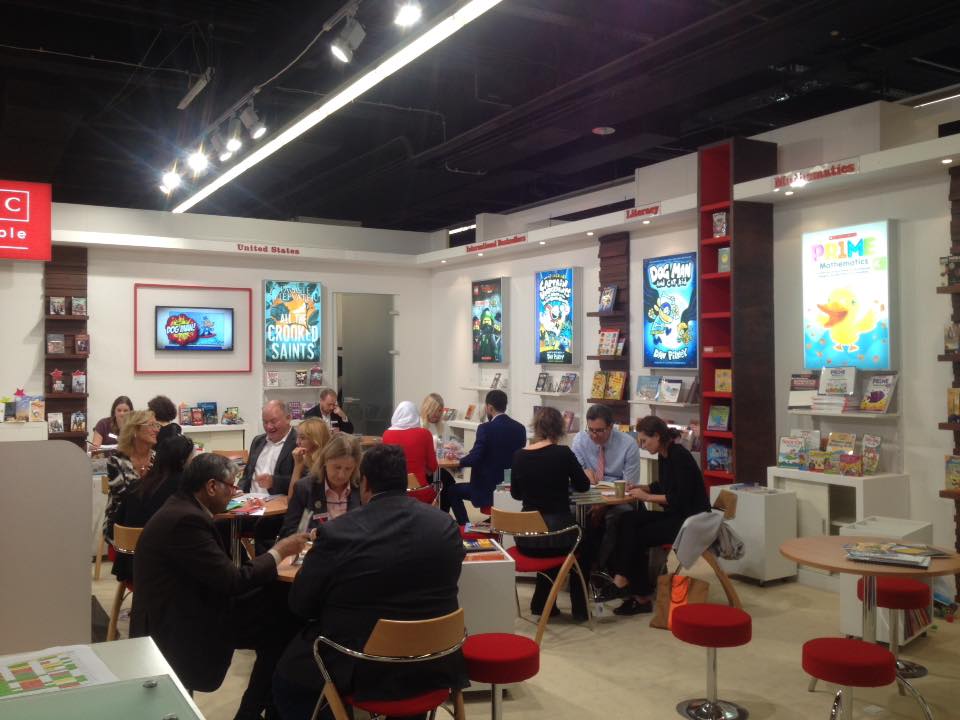
A.O.: Our main task at the fair was to successfully present our books to the global reader and to negotiate with Western agents and publishers, so we were mainly busy presenting our books, holding business meetings and communicating with partners. We were desperate to attend events, conferences and round tables, which were held in abundance during the fair, but unfortunately, we did not always have the time to do so physically.
R.: What amazed, surprised and inspired you?
A.O.: Perhaps what impressed me most was the scale of the event. Starting with the fact that the Frankfurt Trade Fair Centre is eleven pavilions located on a huge area that occupies several blocks in the city center. The statistics were cheering: this year the exhibition was visited by almost three hundred thousand people. And we saw with our own eyes those people who truly care about literature. This is very inspiring, especially in contrast to the depressing and, alas, familiar landscape of the Russian internet, which says that “literature is dead, people no longer read, and those who do, download books from pirates”. No, that is not the case. And we have seen this for ourselves.
Yes, the literary market is in an era of change. The paper sector is increasingly giving way to the electronic segment, publishers do not always know how to respond to these changes (and to many others), but talk about books no longer being in demand is complete nonsense. So is the popular misconception that contemporary Russian literature is not needed in the West. They do, and very much so! The only question is the quality of this literature.
Everyone we talked to at the exhibition – not only publishers and literary agents, but also writers from other countries, readers and people whose business is in one way or another connected with books – all said that professionalism is important in the first place. Awards, regalia, statuses, promoted authors’ blogs are all fine, but no more than an extra ” mark”. The most important thing is that a writer should be able to write great books. If the author’s product is weak, “to the tune of three”, then no “awards” will not help to become a famous and popular writer. At least not in the West.
О. B.: The Frankfurt fair was amazing. A complete immersion into the world of books which I loved so much. All that motley crowd: Europeans, Americans, Slavs, Asians. Books in all languages of the world, about everything in the world… You realise at once that you are not just a writer and a reader, but part of a huge, smoothly working mechanism for spreading the knowledge accumulated by mankind over thousands of years.
I was pleasantly surprised that Western libraries and publishers appear to pay a great deal of attention to the artistry of the text, its style, plot, and novelty. This is cheering. Of course, the commercial potential of books is very important to them. Not all books can be close and understandable to readers from other countries. But there are stories that touch on issues that are meaningful to all people, whatever their language. Such as, for example, Anna Wisloukh’s story about her son. Books like this are hopeful and inspiring. Of course, there are also books for a smaller audience. Our task was also to understand which works are in demand by Western publishers.
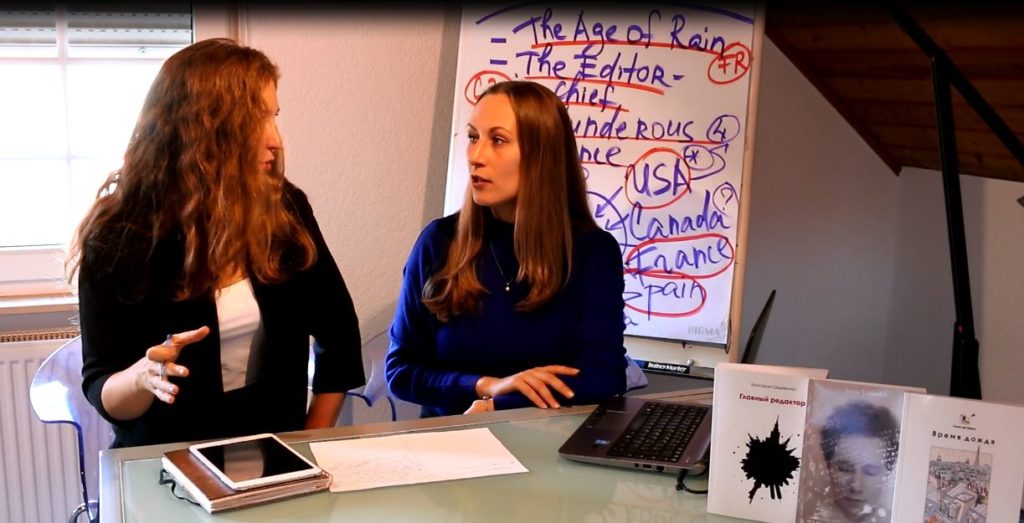
I think that our “adventure” at the Frankfurt Fair proved once again that you have to genuinely wish and do the impossible, even if no one believes in it. For us writers, it is important to keep working, to be true masters of our craft, to write lively books that capture, immerse in their world, teach and entertain, and make the reader better. And dare. Water does not flow beneath a rolling stone.


